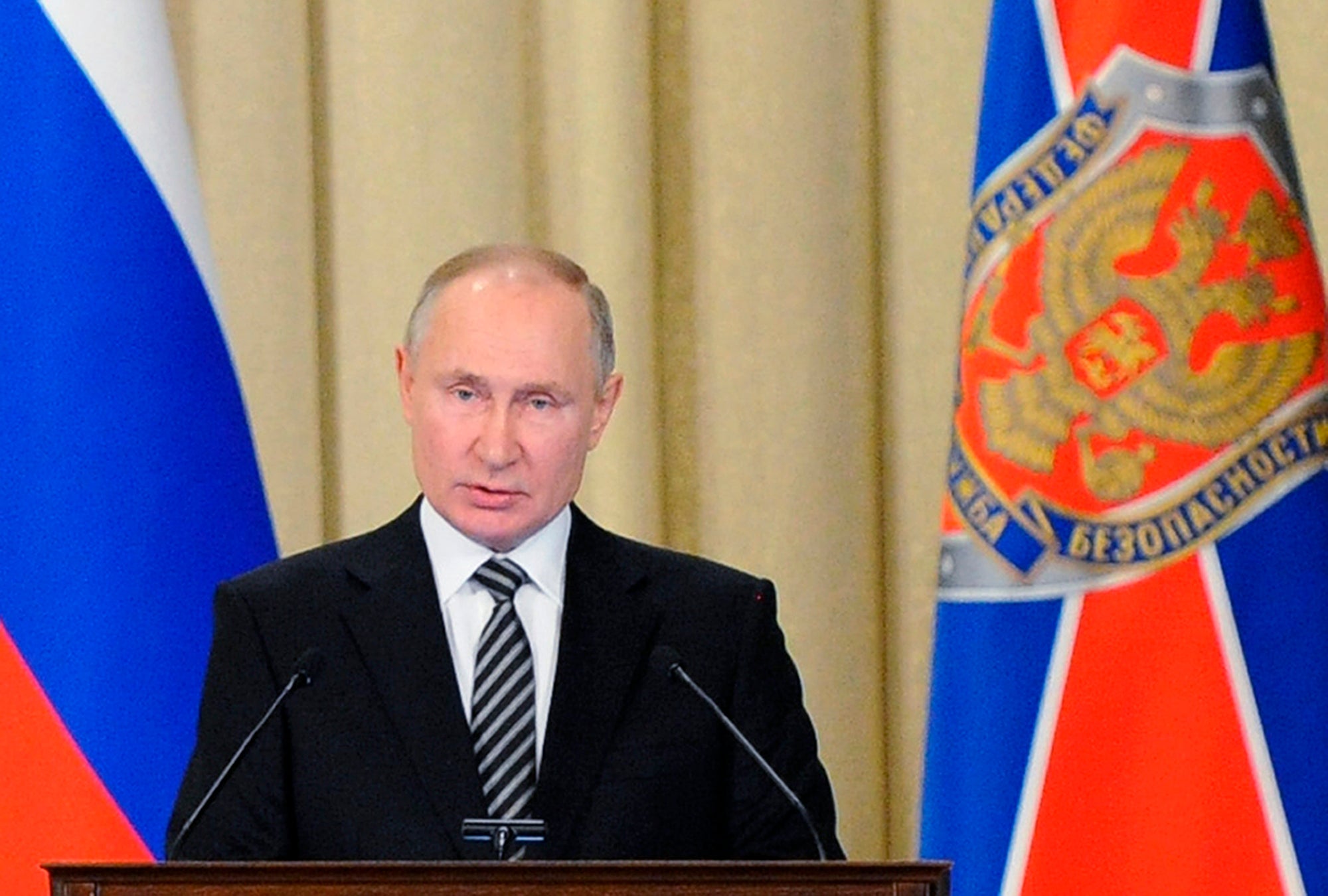Putin warns of foreign efforts to destabilize Russia
Russia’s President Vladimir Putin has ordered the nation’s top counterintelligence agency to redouble its efforts to address what he described as Western attempts to destabilize the country

Your support helps us to tell the story
From reproductive rights to climate change to Big Tech, The Independent is on the ground when the story is developing. Whether it's investigating the financials of Elon Musk's pro-Trump PAC or producing our latest documentary, 'The A Word', which shines a light on the American women fighting for reproductive rights, we know how important it is to parse out the facts from the messaging.
At such a critical moment in US history, we need reporters on the ground. Your donation allows us to keep sending journalists to speak to both sides of the story.
The Independent is trusted by Americans across the entire political spectrum. And unlike many other quality news outlets, we choose not to lock Americans out of our reporting and analysis with paywalls. We believe quality journalism should be available to everyone, paid for by those who can afford it.
Your support makes all the difference.Russia s President Vladimir Putin ordered the nation's top counterintelligence agency Wednesday to redouble its efforts to address what he described as Western attempts to destabilize the country.
Speaking at a meeting of top officials of the Federal Security Service, or FSB, the main KGB successor agency, Putin pointed at the “so-called policy of containment of Russia,” charging that it includes efforts to “derail our development, slow it down, create problems alongside our borders, provoke internal instability and undermine the values that unite Russian society.”
The Russian president added that those activities by foreign powers, which he didn't name, are aimed at “weakening Russia and putting it under outside control.”
Russia's relations with the West have plummeted to post-Cold War lows after Moscow's 2014 annexation of Ukraine's Crimea, Russian meddling in the 2016 U.S. presidential election, and, most recently, the arrest of Russian opposition leader Alexei Navalny and a sweeping crackdown on protests demanding his release.
Navalny, Putin's most prominent (backslash)critic, was arrested on Jan. 17 upon returning from Germany, where he spent five months recovering from a nerve-agent poisoning that he blames on the Kremlin. Russian authorities have rejected the accusation and accused Navalny of cooperating with Western intelligence agencies — claims which he has ridiculed.
Earlier this month, Navalny was sentenced to 2 1/2 years in prison for violating terms of his probation while convalescing in Germany. The sentence stems from a 2014 embezzlement conviction that Navalny has rejected as fabricated and the European Сourt of Human Rights has ruled to be unlawful.
Navalny's arrest has fueled a wave of protests that drew tens of thousands to the streets across Russia. The authorities have detained about 11,000 people, many of whom were fined or given jail terms ranging from seven to 15 days.
In the wake of the demonstrations, the Kremlin-controlled parliament has toughened the punishment for disobeying police and introduced new fines for funding demonstrations. Putin on Wednesday signed those new bills into law.
Without naming Navalny, Putin assailed those in Russia who allegedly serve foreign interests.
“It's necessary to draw a line between natural political competition, competition between political parties, ideological platforms, various views on the country's development, and the activities that have nothing to do with democracy and are aimed at undermining stability and security of our state, at serving foreign interests,” he said.
The Russian president emphasized the need for the FSB to shield the parliamentary elections set for September from any "provocations."
He hailed the agency for disrupting the activities of foreign spies, saying that it unmasked 72 foreign intelligence officers and 423 of their informants.